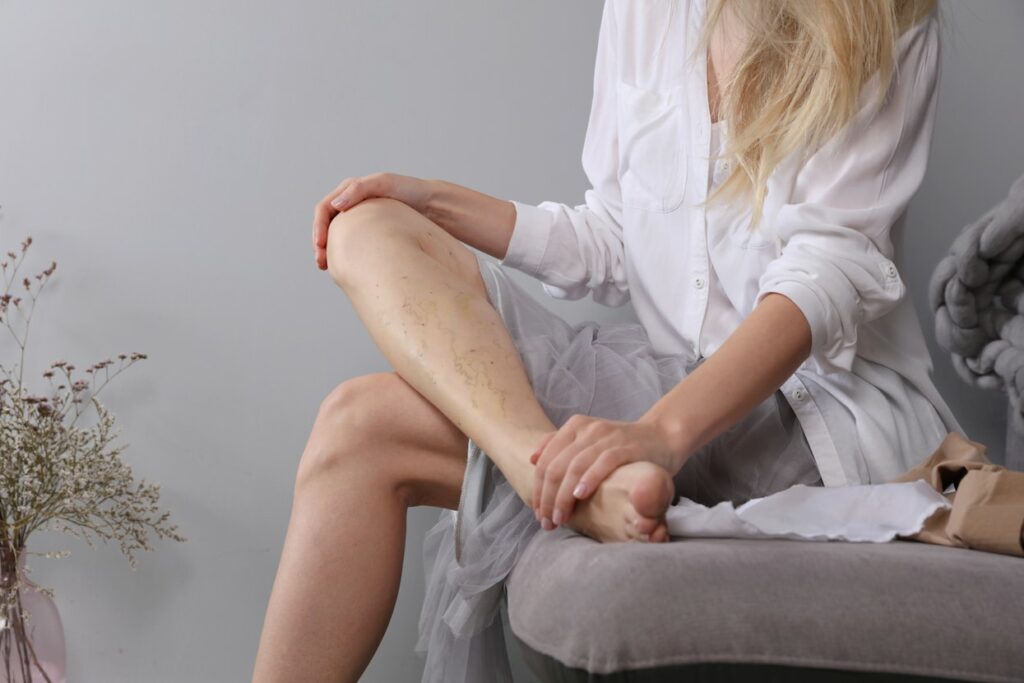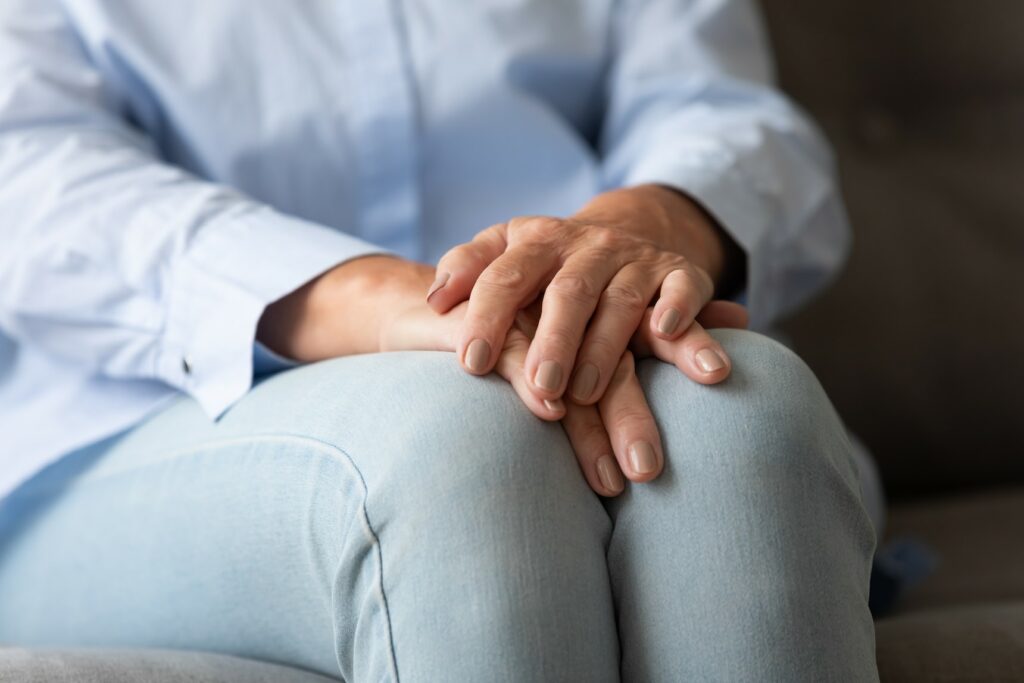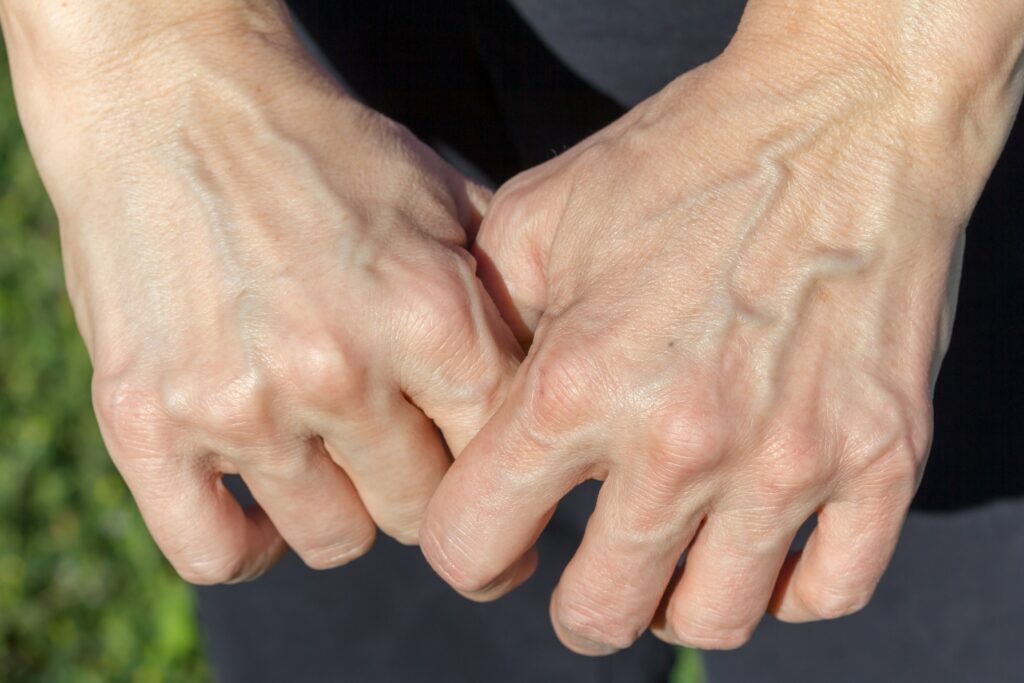Leg varicose veins are by far the most common – but the condition can occur elsewhere in the body, either alongside or independent of the presence of varicose veins in the legs.
Many women experience varicose veins in their vulvar area – most likely during pregnancy. These are called vulvar varicosities and, like a lot of other unpleasant effects of pregnancy, it’s a condition that women rarely talk about.
What are Vulvar Varicosities?
Vulvar varicosities (VVs) occur when varicose veins develop in the vulva (a woman’s external genitalia). They occur due to:
- The extra pressure placed on the lower pelvis by the developing baby
- Relaxed vein walls due to hormonal changes
- The increased blood volume a pregnant woman’s body carries.
Blood overfills and pools in the veins of the vulva (and potentially the upper thighs and bottom) causing the veins to become enlarged, dilated and weakened. They can also twist and inflame or irritate the surrounding tissues.Blood overfills and pools in the veins of the vulva (and potentially the upper thighs and bottom) causing the veins to become enlarged, dilated and weakened.
They can also twist and inflame or irritate the surrounding tissues.(Varicose veins can also develop in the pelvis, uterus, vagina, and ovaries. If this occurs, it is called pelvic congestion syndrome.)Up to 70% of pregnant women will develop varicose veins in their legs during pregnancy – and for many, the issue will resolve on its own without treatment several weeks to months after the baby has been born. It’s also estimated that as many as 18-22% of women experience vulvar varicosities during pregnancy, and this rises to up to 34% for women who have pelvic (internal) varicose veins.
A woman can develop VVs with or without varicose veins in her legs.Many women never seek medical advice for the condition and hence are never diagnosed.
Symptoms include:
● Pressure, fullness, or heaviness in the vulva
● Aching and pain in the vulva
● Dull, aching pain in the lower pelvis/lower back
● Itching and/or swelling
● Visible varicose veins in the labia majora, labia minora, perineum, inner thighs, or on the “bottom”.
● More frequent urination
● Prenatal anxiety/depression
● Pain during sexual intercourse
● Pain before and during menstruation
The symptoms tend to worsen over the course of the day, especially after long periods of sitting or standing.
It’s important to understand that, for most women, vulvar varicosities are exclusive to pregnancy and they typically resolve completely within six weeks or so of giving birth. Additionally, they are very unlikely to cause any issues during vaginal childbirth. The affected veins tend to have low blood flow and are not likely to burst or bleed.
Your obstetrician can help identify a severe vulvar varicosity that is of concern – though this is very rare.
Tips for Symptom Relief
• Keep active. Move, walk, change your position frequently when lying down or sitting, and avoid standing in one place for too long.
• Lie on your left side when resting or sleeping.
• Elevate your hips if you wish to rest on your back.
• Wear comfortable shoes and loose clothing.
• Avoid squatting and kneeling.
• Avoid lifting, pulling, and pushing – all of these cause straining which can exacerbate the problem.
• Support your perineum with a rolled towel (or even your hands) when you need to cough or sneeze.
• Apply a cold compress or ice pack to the vulva to help reduce swelling and inflammation.
• Keep well hydrated and consume plenty of fibre to help avoid constipation. Use a “Squatty Potty” or similar – a small footstool to improve your position when going to the toilet and assist with bowel movements.
• Practice pelvic floor exercises daily.
• Elevate your legs when possible.
• Consume blueberries and strawberries – these contain anthocyanin, which is a natural antioxidant that may help decrease your blood pressure and improve your blood vessel function.
• Minimise salt consumption.
• Consider wearing a support garment tailored for pregnancy and targeting vulvar support.
• Speak to your obstetrician or midwife for appropriate pain relief advice or natural supplements to help.
• Topical corticosteroids may be prescribed to treat itching.
• If you also have varicose veins in your legs, wear compression stockings.
• Speak to an expert vein Doctor about having leg veins treated.
Do Vulvar Varicosities Need Treatment?
Most women will find that their VVs (and symptoms) will completely resolve without treatment after childbirth. Symptom management is a priority.
A small number of women may experience continuing issues – and the condition can occasionally occur outside pregnancy. This could indicate an issue with blood clotting and requires further investigation.
Persistent or non-pregnancy-related VVs may be evaluated using ultrasound to determine their presence and severity, as well as any complications. If pelvic congestion syndrome is suspected, other diagnostic tests may be ordered.
Home-based management is most likely to be recommended (see the tips above).
Other medically prescribed treatments are rarely required but may be indicated if the varicose veins in the vulva are extremely persistent, swollen, red, hard to touch, or painful. They may include:
- Medications to eliminate blood clots if present (this is rare
- Sclerotherapy in rare cases, but ideally not during pregnancy
- Transcatheter embolization
- Phlebectomy
- Ablation
Leg Varicose Veins Treatment at CNCVC?
We offer world-class vein treatments for varicose veins in the legs. You do not need a GP referral to see Dr James in our clinic.
She offers an unparalleled level of care and skill in minimally invasive varicose vein treatments.
Book a consultation today – Dr James will meet with you to identify and understand your concerns and recommend the right treatment for you if your varicose veins need treatment. She can also provide advice and recommendations if further consultation for targeted vulvar varicosity treatment is required.
Our vein treatments are eligible for Medicare rebates.
Depending on your unique circumstances, you may require Ultrasound Guided Sclerotherapy, Endovenous Laser Ablation, and a combination thereof.
Call (02) 9906 1555 or email [email protected].




